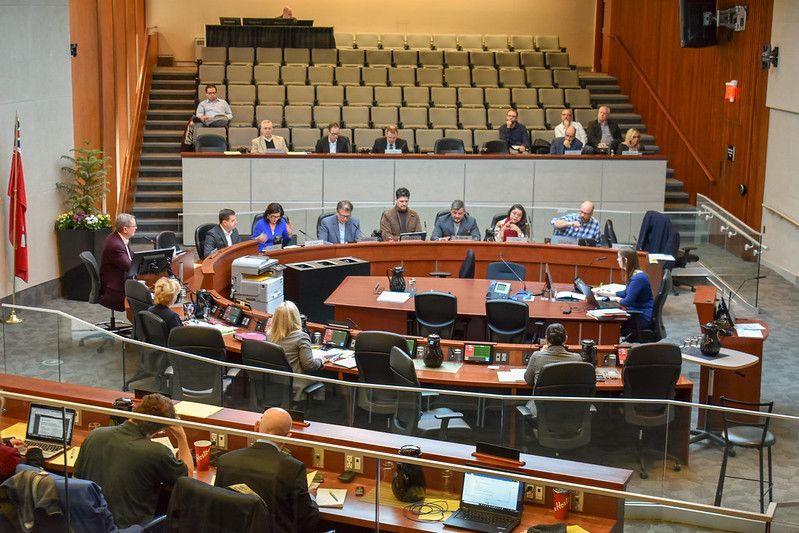The problem of Council blathering cannot be solved by telling them to blather elsewhere.
In fact, speeches at Council are more valuable than ever - including the theatrical/preformative aspects. The historical record they create cannot be replaced by tweets, podcasts, and other forms of communication.
The following are my thoughts in response to two tweets posted by Cameron Kroetsch in discussion of the ongoing problem that is “hours of City Council blathering” at meetings while not saying much of anything meaningful.
Food for thought? On issues where Councillors are already decided, and often already on the public record, Council should hold a quick no nonsense vote. Theatrical speech making is an incredibly inefficient and wasteful way to spend the City’s precious and expensive time. #HamOnt
— Cameron Kroetsch (@CameronKroetsch) June 17, 2021
And it’s not even good theatre. No one would pay to watch 9 hours of City Council blathering. Let Councillors use social media, interviews, podcasts, and other forms of communication to repeat themselves. Let the Council table be reserved for making decisions.
— Cameron Kroetsch (@CameronKroetsch) June 17, 2021
Absolutely, “Council should hold a quick no nonsense vote” when ‘they are already decided, and their views have already been widely discussed’.
Wednesday’s latest LRT vote is a good example, the strongest supporters of LRT did not speak, their positions having been stated at the Council meeting two weeks prior.
However, there is no replacement for the forum that is public deliberative meetings such as Council. They are more valuable today as a platform than they have ever been – even more so than when the means of broadcast were limited.
Videos of proceedings can be permanently stored on digital media, and algorithms are being extremely effective at creating transcripts of the meetings.
We cannot rely upon other media to permanently archive their records, Twitter is terrible for finding information that is more than a day old, and who knows what websites will still be around in a year, let alone decades into the future.
In my academic research, I study municipal government with a focus upon corruption. Records of votes do not provide much enlightenment as to the why, and often lack the how. This is especially true when a politician changes their position on a matter or breaks from their usual voting pattern.
Prior to the 1980s, newspapers ran extension quotations of politicians, and this is of great assistance to researchers today.
During the 1980s, mainstream media shifted to reporting short soundbites with the journalist’s narrative become predominant in story formats. This was especially evident in television reporting. With multiple outlets, the shift to narrative and interpretation creates a rich historical record during this period, with deeper background surrounding events.
However, in the early 1990s when newspaper consolidation results in cuts to newsrooms, the loss of daily coverage of political bodies begins to create significant holes in civic memory and records. The 90s and 00s are gigantic memory holes in many small and mid-size cities.
Technology now provides us the means to create extensive records of all public proceedings – even the “lowest” subcommittee. We can figure out how things were truly made, thus learning from mistakes to avoid repeating them.
Social media gives us a permanent record of the atmosphere surrounding proceedings, and the voices of people who would otherwise be forgotten in official records.
Imagine if there was a social media record of the debate surrounding the amalgamation of Hamilton? There would have been less secrecy surrounding the backroom dealings, and we might have a better understanding of how area-rating came to be.
Kroetsch is correct about the problems.
However, they will not be solved by technology, as culture will chew-up technology every time.
